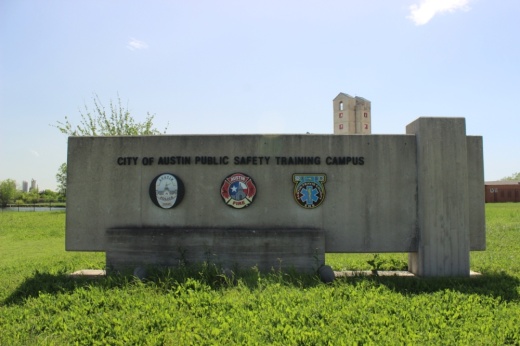Training reforms were initiated after city officials launched a review into the APD's culture and paused all academy sessions in late 2019 and early 2020. Several cadet classes have graduated under a rebooted model since the academy reopened in 2021, although analysts and some community members said many updates are still being met with internal opposition and more work is needed to cement the process going forward.
“It’s one thing for a police department to agree to implement change, it’s another to actually make it happen," said Mark Ehlers, engagement leader for Kroll Associates Inc., the firm that's spent years assessing the APD.
What's happening?
City leaders have contracted with advisory firm Kroll to review several aspects of APD operations, particularly cadet training. Kroll has published a series of reports on the academy and other policing issues in Austin over recent years.
The firm released its final review of the APD in March, which covered the department's plans to sustain the recent reform efforts without external oversight. That evaluation came with the APD's completion of a new operations manual to guide that work for the academy.
Changes like the APD's adoption of Kroll recommendations, its collaboration with community members on cadet training and the involvement of civilian leadership at the academy have all seen a bumpy rollout since city officials first moved to "reimagine" several areas of public safety in Austin in 2020.
Outside the police department, Austinites who participated in an inaugural curriculum review committee remained skeptical their work was considered or that police leaders and instructors were taking the updates seriously.
The department said recommendations from the original, now-defunct Curriculum Review Committee were incorporated into nearly 20 different lesson plans in subject areas such as professionalism and ethics, racial profiling, multiculturalism and human relations, crisis intervention, sex crimes, and state and federal constitutional issues.
The Kroll team wrote that its initial working relationship with police officials "devolved into a series of stops and starts and unmet deadlines," especially given frequent APD staff turnover, and concluded the department overall was "appearing to do just enough to suggest progress without completely embracing and accepting the hard work of change."
“Progress has been made in many of the areas in implementing the reform measures and the past Kroll recommendations, but more work clearly remains before the full spirit and intent of the recommended measures can become part of academy life and culture," Ehlers told City Council on March 25.
Heightened scrutiny of the academy has come as the police department is focused on boosting recruitment while it remains short hundreds of budgeted officer positions.
Since early 2022, academy classes under the rebooted format have each generally resulted in a few dozen officers graduating. The next class is scheduled to begin this summer and has 112 potential candidates as of late March.Zooming in
With the Kroll team exiting its oversight and advisory role, the APD will be left to monitor its work with the proposed academy updates.
Ongoing internal evaluation will be based around the new academy operations manual developed over recent months. In addition to laying out a variety of academy policies, the manual is intended to help track the progress toward Kroll's proposals without the firm's continued assessments.
Rob McGrath, the APD's new program manager over curriculum, said the 22 high-level recommendations will be phased in over the next few years. Those items include:
- Permanently shifting the academy culture from a harsher paramilitary model to a guardian-centric approach promoting de-escalation
- Giving civilian leadership more power at the academy
- Grading APD instructors on their performance
- Promoting greater racial, ethnic or gender diversity among academy leaders and cadets
- Having subject-matter experts and everyday Austinites participate in some cadet training and curriculum reviews
- Allowing cadets who don't graduate the opportunity to offer feedback through exit interviews
- Ensuring the APD completes internal audits of the academy to help sustain reforms
Kroll's report also noted the APD hasn't completed its council-mandated audits for most new cadet classes, leaving "many gaps in information and decisions."
“While there’s lots of work to do, I’m now being given the opportunity to do it and do it effectively. And that’s what I intend to do," McGrath said.
The department is now working to hire more civilian academy staff and establishing new community and professional advisory committees to weigh in on the training program and instruction materials. With that foundation in place, McGrath said the department's focus will shift to maintaining the processes long-term.
Kroll, APD and city officials all said that the successful use of the new guidebook, including up-to-date reporting on academy sessions, will be essential to seeing the changes through—especially after the APD failed to meet previous deadlines and complete the recent series of required audits.
“We have, to this date, had Kroll in there helping us to understand where we’re at, helping to identify the path forward. With the delivery of this report, at this point in time we won’t be having that," council member Alison Alter said. "That makes the manual, that makes the audit protocol that much more important because this is how we are going to be able to hold the academy accountable. This is how we’re going to make sure that we have a learning organization."
Dan Linskey, a Kroll policing expert and former superintendent-in-chief of the Boston Police Department, also said Austin will need to ensure nonpolice voices are valued at the academy if the "necessary" culture shift is to continue.
“The challenge will be to make sure that the commander and the organization can bridge that gap where civilian input is not met with friction and is met with an embrace as far as, ‘How do we make this process better?’" he said.





